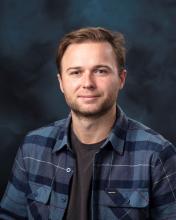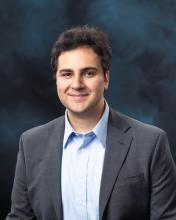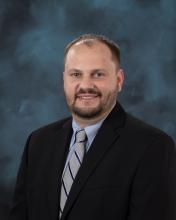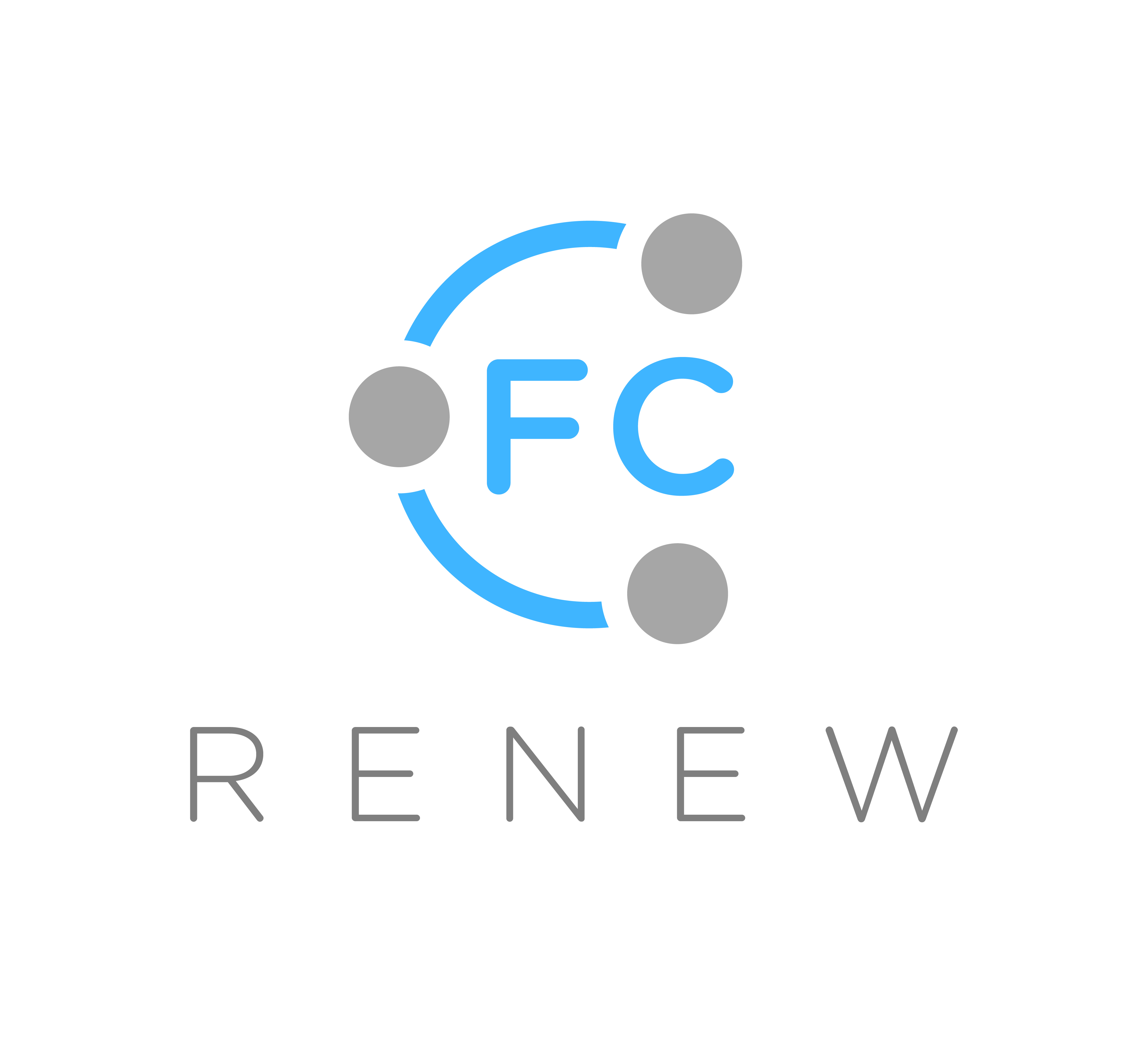
Caleb Alexander
DayLyte Batteries
Bio:While pursuing his Chemical Engineering degree at the University of California, Berkeley, Caleb Alexander served as president of the AIChE chapter and founded both a brewing club and a biodiesel…

Caleb Alexander
DayLyte Batteries, Founder & CEO
Bio:
While pursuing his Chemical Engineering degree at the University of California, Berkeley, Caleb Alexander served as president of the AIChE chapter and founded both a brewing club and a biodiesel club to provide students with hands-on engineering experience. He also took a chemical engineering economics class that introduced him to finance and game theory, which he applied to develop a business plan for a deep-sea rare earth element mining company. This experience sharpened his ability to view problems from a broader perspective and identify impactful solutions.
Caleb’s expertise includes scaling chemical processes to industrial levels, enriched by his background in electrochemistry from UC Berkeley, Li-ion research at Lawrence Berkeley National Laboratory, and a PhD focused on metal-air batteries and fuel cells at the University of Texas, Austin. By analyzing the periodic table and leveraging his diverse experiences, he has focused on developing high-energy, low-cost battery chemistry.
As an alumnus of Innovation Crossroads, Caleb continues to work towards making the Na-Air battery scalable and long-lasting, with a vision for a cleaner, more sustainable world.

Project Abstract:
DayLyte Batteries is pioneering the commercialization of Metal-Air (M-Air) batteries designed to significantly enhance battery energy density, reduce weight by 50%, and lower costs using abundant materials. This breakthrough technology aims to deliver renewable energy on demand, double the range of electric vehicles, and decrease costs, while also enabling innovative applications like drone delivery and electric air taxis.
In collaboration with scientists and facilities at Oak Ridge National Laboratory (ORNL), DayLyte completed a prototype, initiated long-term life testing, and addressed challenges associated with scaling up through roll-to-roll processing. This effort paved the way for widespread adoption of advanced battery solutions in various transportation and energy applications.
Bio:
While pursuing his Chemical Engineering degree at the University of California, Berkeley, Caleb Alexander served as president of the AIChE chapter and founded both a brewing club and a biodiesel club to provide students with hands-on engineering experience. He also took a chemical engineering economics class that introduced him to finance and game theory, which he applied to develop a business plan for a deep-sea rare earth element mining company. This experience sharpened his ability to view problems from a broader perspective and identify impactful solutions.
Caleb’s expertise includes scaling chemical processes to industrial levels, enriched by his background in electrochemistry from UC Berkeley, Li-ion research at Lawrence Berkeley National Laboratory, and a PhD focused on metal-air batteries and fuel cells at the University of Texas, Austin. By analyzing the periodic table and leveraging his diverse experiences, he has focused on developing high-energy, low-cost battery chemistry.
As an alumnus of Innovation Crossroads, Caleb continues to work towards making the Na-Air battery scalable and long-lasting, with a vision for a cleaner, more sustainable world.

Project Abstract:
DayLyte Batteries is pioneering the commercialization of Metal-Air (M-Air) batteries designed to significantly enhance battery energy density, reduce weight by 50%, and lower costs using abundant materials. This breakthrough technology aims to deliver renewable energy on demand, double the range of electric vehicles, and decrease costs, while also enabling innovative applications like drone delivery and electric air taxis.
In collaboration with scientists and facilities at Oak Ridge National Laboratory (ORNL), DayLyte completed a prototype, initiated long-term life testing, and addressed challenges associated with scaling up through roll-to-roll processing. This effort paved the way for widespread adoption of advanced battery solutions in various transportation and energy applications.

Sam Evans
Unbound Water Technologies
Bio:Sam Evans earned his Bachelor of Science degree in Chemistry from the University of South Carolina in 2015, followed by a Master of Science degree in Chemistry from Georgia Tech in 2017. He…

Sam Evans
Unbound Water Technologies, Founder & CEO
Bio:
Sam Evans earned his Bachelor of Science degree in Chemistry from the University of South Carolina in 2015, followed by a Master of Science degree in Chemistry from Georgia Tech in 2017. He completed his PhD in Energy Science and Engineering in August 2020 at the Bredesen Center for Graduate Education at the University of Tennessee (UTK), a partnership between UTK and Oak Ridge National Laboratory (ORNL).
During his PhD, Sam conducted research at ORNL focusing on the development of magnetic adsorbents for water remediation, as well as projects related to water treatment, lithium-ion removal, and desalination. He has collaborated with start-ups, mid-level companies, and multinational corporations to develop materials, processes, and intellectual property within the energy and water sectors.
Sam’s involvement with ORNL and the Department of Energy’s research programs, along with his work with cutting-edge industry partners, has equipped him for a dynamic, high-technology entrepreneurial career. His research has resulted in 10 publications (including 4 as first author), multiple invention disclosures, and a submitted patent on water remediation systems and materials. As an alumnus of Innovation Crossroads, Sam is well-prepared to continue making significant contributions in his field.

Project Abstract:
At Unbound Water Technologies, we are committed to the sustainable removal of toxic pollutants and materials from concentrated waste sources that contaminate our waterways. Our mission is to develop and commercialize advanced materials for effective water remediation and treatment.
Our innovative approach leverages the internal pore structure of tire-derived carbon to support iron nanoparticles, creating a material with a high effective surface area for pollutant removal. This technology enhances stability to minimize degradation, enables easy separation after adsorption through magnetic properties, and integrates seamlessly into existing on-site systems.
By providing a low-cost, highly efficient solution, our technology facilitates rapid adoption by industries seeking effective water treatment and remediation solutions, contributing to a cleaner and healthier environment.
Bio:
Sam Evans earned his Bachelor of Science degree in Chemistry from the University of South Carolina in 2015, followed by a Master of Science degree in Chemistry from Georgia Tech in 2017. He completed his PhD in Energy Science and Engineering in August 2020 at the Bredesen Center for Graduate Education at the University of Tennessee (UTK), a partnership between UTK and Oak Ridge National Laboratory (ORNL).
During his PhD, Sam conducted research at ORNL focusing on the development of magnetic adsorbents for water remediation, as well as projects related to water treatment, lithium-ion removal, and desalination. He has collaborated with start-ups, mid-level companies, and multinational corporations to develop materials, processes, and intellectual property within the energy and water sectors.
Sam’s involvement with ORNL and the Department of Energy’s research programs, along with his work with cutting-edge industry partners, has equipped him for a dynamic, high-technology entrepreneurial career. His research has resulted in 10 publications (including 4 as first author), multiple invention disclosures, and a submitted patent on water remediation systems and materials. As an alumnus of Innovation Crossroads, Sam is well-prepared to continue making significant contributions in his field.

Project Abstract:
At Unbound Water Technologies, we are committed to the sustainable removal of toxic pollutants and materials from concentrated waste sources that contaminate our waterways. Our mission is to develop and commercialize advanced materials for effective water remediation and treatment.
Our innovative approach leverages the internal pore structure of tire-derived carbon to support iron nanoparticles, creating a material with a high effective surface area for pollutant removal. This technology enhances stability to minimize degradation, enables easy separation after adsorption through magnetic properties, and integrates seamlessly into existing on-site systems.
By providing a low-cost, highly efficient solution, our technology facilitates rapid adoption by industries seeking effective water treatment and remediation solutions, contributing to a cleaner and healthier environment.

Tommy Gibbons
Hempitecture
Bio:Tommy Gibbons brings a diverse background in corporate finance and early-stage company growth to his role at Hempitecture. His business acumen is complemented by a strong foundation in green…

Tommy Gibbons
Hempitecture, Co-founder & COO
Bio:
Tommy Gibbons brings a diverse background in corporate finance and early-stage company growth to his role at Hempitecture. His business acumen is complemented by a strong foundation in green building, including certification as a LEED Green Associate, recognition as a 2021 Building Technologies Office IMPEL+ innovator, and training from France’s l’École Nationale du Chanvre (National School of Hemp Construction). Additionally, he served as a founding board member and treasurer of the United States Hemp Building Association, a trade association dedicated to the hemp building industry.
Prior to founding Hempitecture in Ketchum, Idaho, Tommy worked at Piper Computers in San Francisco and Goldman Sachs in New York City. He holds a degree from Princeton University’s Woodrow Wilson School of Public Policy, graduating in 2013.
At Hempitecture, Tommy oversees operations and new product development, with a notable focus on HempWool insulation—a non-toxic, high-performance, carbon-negative material designed to significantly reduce a building’s embodied carbon footprint while enhancing occupant health and comfort. In 2021, Hempitecture plans to advance its research and testing of proprietary insulation blends to improve insulation value and fire resistance, and to onshore insulation manufacturing using industrial hemp waste from American farmers. The company also aims to develop additional hemp-based building products, aligning with its mission as a Public Benefit Corporation to create healthy, energy-efficient habitats that positively impact both inhabitants and the environment through carbon dioxide sequestration. In 2020, Tommy was recognized on the Forbes 30 Under 30 list for manufacturing and industry, alongside his co-founder.

Project Abstract:
Hempitecture is revolutionizing sustainable construction with innovative hemp-based products that leverage one of the most efficient and low-resource plants to offset atmospheric carbon dioxide on a large scale.
While operating within the Maximum Building Energy Efficiency Research Laboratory (MAXLAB) at the Building Technologies Research Center, Hempitecture advanced its product roadmap with hemp-based alternatives to conventional building materials such as drywall, vapor barriers, and external insulation. Following the successful launch of HempWool®, a hemp fiber insulation material, the company focused on developing cost-competitive, domestically manufactured products for the market.
Since its inception in 2013, Hempitecture has been at the forefront of producing the most sustainable building materials available. Our plant-based insulation materials are derived from carbon-capturing, renewable agricultural industrial hemp, offering non-toxic, eco-friendly solutions that benefit both people and the planet.
Hempitecture envisions a future where natural, non-toxic materials like HempWool become the industry standard, contributing to significant decarbonization of built environments. Our goal is to create healthier buildings, enhance occupant well-being, and promote a healthier planet through our commitment to sustainable building practices.
Bio:
Tommy Gibbons brings a diverse background in corporate finance and early-stage company growth to his role at Hempitecture. His business acumen is complemented by a strong foundation in green building, including certification as a LEED Green Associate, recognition as a 2021 Building Technologies Office IMPEL+ innovator, and training from France’s l’École Nationale du Chanvre (National School of Hemp Construction). Additionally, he served as a founding board member and treasurer of the United States Hemp Building Association, a trade association dedicated to the hemp building industry.
Prior to founding Hempitecture in Ketchum, Idaho, Tommy worked at Piper Computers in San Francisco and Goldman Sachs in New York City. He holds a degree from Princeton University’s Woodrow Wilson School of Public Policy, graduating in 2013.
At Hempitecture, Tommy oversees operations and new product development, with a notable focus on HempWool insulation—a non-toxic, high-performance, carbon-negative material designed to significantly reduce a building’s embodied carbon footprint while enhancing occupant health and comfort. In 2021, Hempitecture plans to advance its research and testing of proprietary insulation blends to improve insulation value and fire resistance, and to onshore insulation manufacturing using industrial hemp waste from American farmers. The company also aims to develop additional hemp-based building products, aligning with its mission as a Public Benefit Corporation to create healthy, energy-efficient habitats that positively impact both inhabitants and the environment through carbon dioxide sequestration. In 2020, Tommy was recognized on the Forbes 30 Under 30 list for manufacturing and industry, alongside his co-founder.

Project Abstract:
Hempitecture is revolutionizing sustainable construction with innovative hemp-based products that leverage one of the most efficient and low-resource plants to offset atmospheric carbon dioxide on a large scale.
While operating within the Maximum Building Energy Efficiency Research Laboratory (MAXLAB) at the Building Technologies Research Center, Hempitecture advanced its product roadmap with hemp-based alternatives to conventional building materials such as drywall, vapor barriers, and external insulation. Following the successful launch of HempWool®, a hemp fiber insulation material, the company focused on developing cost-competitive, domestically manufactured products for the market.
Since its inception in 2013, Hempitecture has been at the forefront of producing the most sustainable building materials available. Our plant-based insulation materials are derived from carbon-capturing, renewable agricultural industrial hemp, offering non-toxic, eco-friendly solutions that benefit both people and the planet.
Hempitecture envisions a future where natural, non-toxic materials like HempWool become the industry standard, contributing to significant decarbonization of built environments. Our goal is to create healthier buildings, enhance occupant well-being, and promote a healthier planet through our commitment to sustainable building practices.

Shuchi “SK” Khurana
Addiguru
Bio:Shuchi “SK” Khurana brings twenty years of experience in predictive analysis and the commercialization of new products and technologies. SK specializes in computational weld modeling, material…

Shuchi “SK” Khurana
Addiguru, Founder & CEO
Bio:
Shuchi “SK” Khurana brings twenty years of experience in predictive analysis and the commercialization of new products and technologies. SK specializes in computational weld modeling, material science, and the prediction of material properties and microstructures based on thermal signals. He has authored over 10 research papers in peer-reviewed journals on microstructure prediction and engineering simulation and holds more than 5 granted patents, including one for cloud-based simulation software for material joining.
SK’s expertise spans the full spectrum of software product management and development. Before founding Addiguru, he worked at Intralox, where he led the development and launch of a predictive software product for industrial applications. His extensive experience includes developing and commercializing novel technologies, with a notable achievement of co-founding and running a startup that raised $4 million in venture funding.
SK earned his Bachelor of Technology in Materials and Metallurgical Engineering from the Indian Institute of Technology (IIT) Kanpur and holds both a Master of Science and a Master of Business Administration from Ohio State University.

Project Abstract:
Addiguru specializes in real-time monitoring technology for additive manufacturing (3D printing), addressing the challenge of detecting and repairing part defects that occur during the build process. Detecting these issues after a part is completed can be costly and complex. Addiguru’s layer-wise monitoring technology identifies anomalies and defects as they arise during the build process, providing immediate notifications to users. Currently, the system uses optical images combined with image processing and artificial intelligence to pinpoint issues within seconds of a layer’s completion.
As an alumni of Innovation Crossroads, Addiguru advanced this real-time monitoring technology through innovative techniques. The company has integrated a patent-licensed combination of Infra-Red (IR) and Near Infra-Red (NIR) cameras to enhance defect detection accuracy. This advancement has significantly benefited the additive manufacturing industry by improving monitoring precision and efficiency.
Bio:
Shuchi “SK” Khurana brings twenty years of experience in predictive analysis and the commercialization of new products and technologies. SK specializes in computational weld modeling, material science, and the prediction of material properties and microstructures based on thermal signals. He has authored over 10 research papers in peer-reviewed journals on microstructure prediction and engineering simulation and holds more than 5 granted patents, including one for cloud-based simulation software for material joining.
SK’s expertise spans the full spectrum of software product management and development. Before founding Addiguru, he worked at Intralox, where he led the development and launch of a predictive software product for industrial applications. His extensive experience includes developing and commercializing novel technologies, with a notable achievement of co-founding and running a startup that raised $4 million in venture funding.
SK earned his Bachelor of Technology in Materials and Metallurgical Engineering from the Indian Institute of Technology (IIT) Kanpur and holds both a Master of Science and a Master of Business Administration from Ohio State University.

Project Abstract:
Addiguru specializes in real-time monitoring technology for additive manufacturing (3D printing), addressing the challenge of detecting and repairing part defects that occur during the build process. Detecting these issues after a part is completed can be costly and complex. Addiguru’s layer-wise monitoring technology identifies anomalies and defects as they arise during the build process, providing immediate notifications to users. Currently, the system uses optical images combined with image processing and artificial intelligence to pinpoint issues within seconds of a layer’s completion.
As an alumni of Innovation Crossroads, Addiguru advanced this real-time monitoring technology through innovative techniques. The company has integrated a patent-licensed combination of Infra-Red (IR) and Near Infra-Red (NIR) cameras to enhance defect detection accuracy. This advancement has significantly benefited the additive manufacturing industry by improving monitoring precision and efficiency.

Forrest Shriver
Sentinel Devices LLC
Bio:Forrest Shriver is the Chief Executive Officer of Sentinel Devices LLC and a PhD candidate in Nuclear Engineering at the University of Florida (UF), with an anticipated graduation in May 2021.…

Forrest Shriver
Sentinel Devices, Founder & CEO
Bio:
Forrest Shriver is the Chief Executive Officer of Sentinel Devices LLC and a PhD candidate in Nuclear Engineering at the University of Florida (UF), with an anticipated graduation in May 2021. His dissertation focuses on applying deep learning models to reactor modeling and simulation tasks, particularly in using these models for high-fidelity parameter prediction based on simulated data, while addressing specific data needs and challenges.
Forrest graduated summa cum laude with a Bachelor of Science in Physics from the University of Texas, Rio Grande Valley, and holds a Master’s degree in Nuclear Engineering from UF. Throughout his undergraduate and graduate research career, he has contributed to projects involving design implementation on Field Programmable Gate Arrays (FPGAs), developing CUDA kernels to investigate complex computational behavior, and acquiring expertise in various computer languages and programming models.
Inspired by a passion for enhancing technology security and optimization, Forrest co-founded Sentinel Devices LLC to leverage machine learning for the industrial Internet of Things (IoT). Outside of his professional endeavors, he enjoys reading science fiction and cooking.

Project Abstract:
Industrial control systems are crucial to our daily lives, yet many rely on trust-based digital controllers for communication, leaving them vulnerable to cyberattacks with potentially severe economic and social consequences. Sentinel Devices LLC is advancing industrial cybersecurity by introducing a next-generation solution for autonomous cyberattack detection at the industrial edge. Unlike traditional network-based methods that require constant online communication to be effective, our technology operates independently, detecting cyberattacks and anomalies locally. This localized approach provides precise, real-time threat understanding and enhances the security of industrial control systems in a rapidly evolving digital landscape.
Bio:
Forrest Shriver is the Chief Executive Officer of Sentinel Devices LLC and a PhD candidate in Nuclear Engineering at the University of Florida (UF), with an anticipated graduation in May 2021. His dissertation focuses on applying deep learning models to reactor modeling and simulation tasks, particularly in using these models for high-fidelity parameter prediction based on simulated data, while addressing specific data needs and challenges.
Forrest graduated summa cum laude with a Bachelor of Science in Physics from the University of Texas, Rio Grande Valley, and holds a Master’s degree in Nuclear Engineering from UF. Throughout his undergraduate and graduate research career, he has contributed to projects involving design implementation on Field Programmable Gate Arrays (FPGAs), developing CUDA kernels to investigate complex computational behavior, and acquiring expertise in various computer languages and programming models.
Inspired by a passion for enhancing technology security and optimization, Forrest co-founded Sentinel Devices LLC to leverage machine learning for the industrial Internet of Things (IoT). Outside of his professional endeavors, he enjoys reading science fiction and cooking.

Project Abstract:
Industrial control systems are crucial to our daily lives, yet many rely on trust-based digital controllers for communication, leaving them vulnerable to cyberattacks with potentially severe economic and social consequences. Sentinel Devices LLC is advancing industrial cybersecurity by introducing a next-generation solution for autonomous cyberattack detection at the industrial edge. Unlike traditional network-based methods that require constant online communication to be effective, our technology operates independently, detecting cyberattacks and anomalies locally. This localized approach provides precise, real-time threat understanding and enhances the security of industrial control systems in a rapidly evolving digital landscape.

Philip Stuckey
FC Renew, LLC
Bio:Philip Stuckey brings over sixteen years of expertise in hydrogen fuel cells, encompassing research, development, and intellectual property. He holds a Bachelor of Science in Materials Science…

Philip Stuckey
FC Renew, Founder & CEO
Bio:
Philip Stuckey brings over sixteen years of expertise in hydrogen fuel cells, encompassing research, development, and intellectual property. He holds a Bachelor of Science in Materials Science and Engineering from North Carolina State University, a Master of Science in Mechanical Engineering from the University of Hawaii at Mānoa, and a PhD in Chemical Engineering from Case Western Reserve University, where he conducted much of his doctoral research at Oak Ridge National Laboratory.
Prior to joining Innovation Crossroads, Philip served as a Patent Examiner at the United States Patent and Trademark Office (USPTO), specializing in fuel cell and battery applications, and was recognized as a Patent Agent for his contributions. Before his tenure at the USPTO, he researched electrochemical kinetic processes at proton exchange membrane fuel cell electrodes at Oak Ridge National Laboratory’s Fuels, Engines, and Emissions Research Laboratory. Philip developed a novel in-situ technique to measure catalyst kinetics and oxide layer presence on operating fuel cells and led a project on growing carbon nanotubes for ultrahydrophobic materials used in diffusion media and electrocatalyst support, addressing water management challenges in fuel cell operations.

Project Abstract:
The broad adoption of zero-emission, green hydrogen fuel cell technology in heavy-duty trucks is currently constrained by the limited durability of approximately 5,000 hours, or about 150,000 miles of service. FC Renew is addressing this challenge with our advanced electrode technology, designed to rejuvenate the electrocatalyst within a fuel assembly. This innovation aims to extend durability to over 30,000 hours, equating to more than 1.2 million miles of operation. By significantly enhancing the lifespan of hydrogen fuel cells, our technology will enable heavy-duty trucks and other applications to benefit from green, zero-emission fuel cells without the need for frequent and costly fuel cell stack replacements.
Hydrogen fuel cells represent a crucial component in advancing a hydrogen economy, offering a zero-emission alternative to internal combustion engines. FC Renew is at the forefront of this technology, driving progress toward widespread adoption and a sustainable future.
Bio:
Philip Stuckey brings over sixteen years of expertise in hydrogen fuel cells, encompassing research, development, and intellectual property. He holds a Bachelor of Science in Materials Science and Engineering from North Carolina State University, a Master of Science in Mechanical Engineering from the University of Hawaii at Mānoa, and a PhD in Chemical Engineering from Case Western Reserve University, where he conducted much of his doctoral research at Oak Ridge National Laboratory.
Prior to joining Innovation Crossroads, Philip served as a Patent Examiner at the United States Patent and Trademark Office (USPTO), specializing in fuel cell and battery applications, and was recognized as a Patent Agent for his contributions. Before his tenure at the USPTO, he researched electrochemical kinetic processes at proton exchange membrane fuel cell electrodes at Oak Ridge National Laboratory’s Fuels, Engines, and Emissions Research Laboratory. Philip developed a novel in-situ technique to measure catalyst kinetics and oxide layer presence on operating fuel cells and led a project on growing carbon nanotubes for ultrahydrophobic materials used in diffusion media and electrocatalyst support, addressing water management challenges in fuel cell operations.

Project Abstract:
The broad adoption of zero-emission, green hydrogen fuel cell technology in heavy-duty trucks is currently constrained by the limited durability of approximately 5,000 hours, or about 150,000 miles of service. FC Renew is addressing this challenge with our advanced electrode technology, designed to rejuvenate the electrocatalyst within a fuel assembly. This innovation aims to extend durability to over 30,000 hours, equating to more than 1.2 million miles of operation. By significantly enhancing the lifespan of hydrogen fuel cells, our technology will enable heavy-duty trucks and other applications to benefit from green, zero-emission fuel cells without the need for frequent and costly fuel cell stack replacements.
Hydrogen fuel cells represent a crucial component in advancing a hydrogen economy, offering a zero-emission alternative to internal combustion engines. FC Renew is at the forefront of this technology, driving progress toward widespread adoption and a sustainable future.

